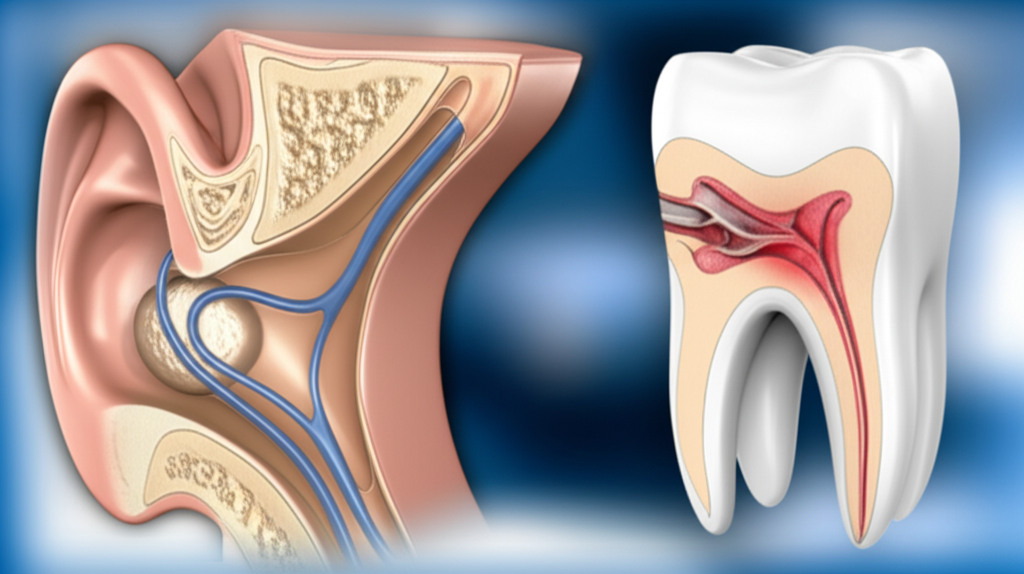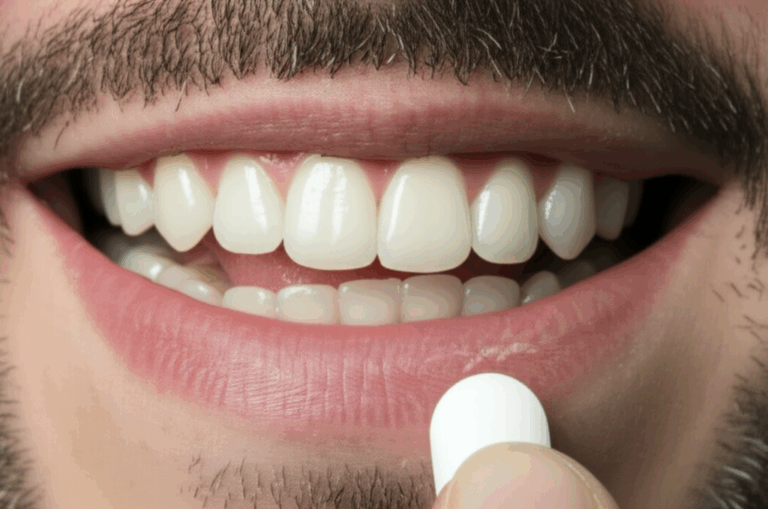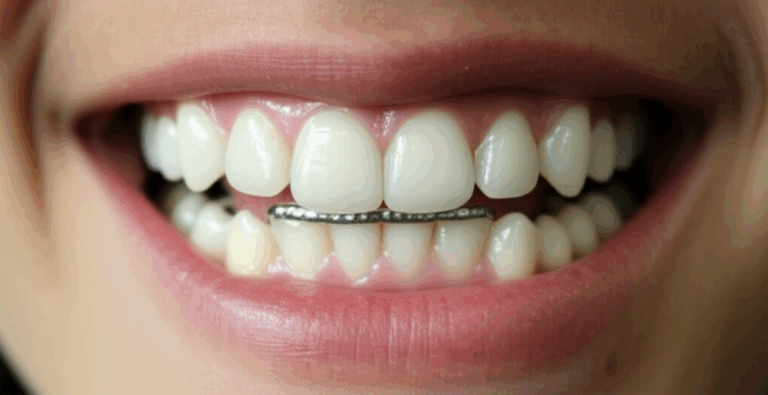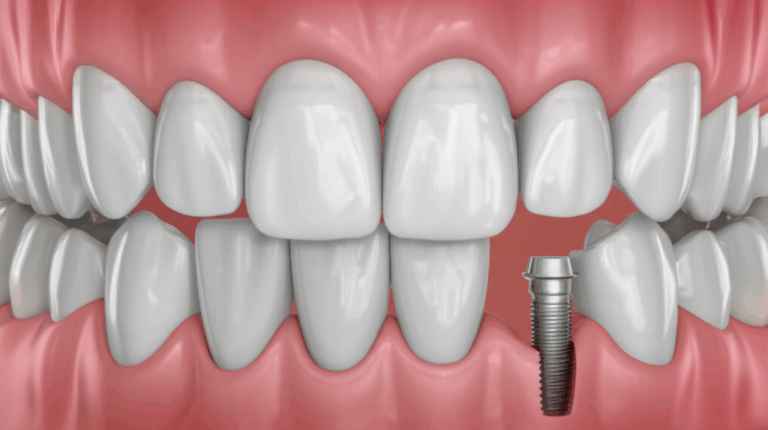
Can Dental Problems Cause Vertigo? Understanding the Surprising Link
Ever felt dizzy or off balance after a toothache or dental visit? You’re not alone. This article explains in simple words how dental problems like TMJ, infections, and bite issues can cause vertigo or dizziness. By the end, you’ll know what signs to watch for, how your teeth connect to your balance, and what to do about it. Because feeling steady on your feet starts with a healthy mouth!
Table of Contents
- What Is Vertigo and Why Does It Matter?
- Can Dental Problems Really Cause Dizziness?
- How Does Your Jaw Affect Your Balance?
- Which Dental Issues Cause Vertigo?
- What About TMJ Disorders and Dizziness?
- Can Tooth Infections Make You Dizzy?
- Are Bite Problems or Jaw Clenching Behind It?
- Could Dental Work Make You Lightheaded?
- Who Should You See for Dizziness Connected to Teeth?
- What Can You Do to Fix Dental-Linked Vertigo?
- FAQ: Answers to Common Questions
- Key Takeaways
What Is Vertigo and Why Does It Matter?
Vertigo means you feel like you or the room are spinning. It’s not just being dizzy. Sometimes, vertigo comes with other things, like headaches, ear pain, jaw pain, or a sore neck. You might also feel lightheaded or like you might faint. Most people think these problems always come from the inside of the ear, but the mouth can play a part too.
Why is this important? Sometimes your mouth is the reason you feel this way. If you notice jaw pain, toothaches, or you feel dizzy after going to the dentist, don’t ignore it. Fixing your teeth could fix the problem faster.
Can Dental Problems Really Cause Dizziness?
To be clear—yes, dental problems can cause vertigo or dizziness. Most people don’t think of their teeth or jaw when they feel off balance. But doctors and dentists see this all the time. Some studies say up to half of people with jaw problems (TMJ) also feel dizzy [Ribeiro-Dasilva et al., 2007]. That’s a big number!
Dental problems may not be the only reason you feel dizzy. But they can make it worse or trigger it if you already feel off. So, if you want to feel better, don’t forget about your teeth.
How Does Your Jaw Affect Your Balance?
Here’s where it gets interesting. Your jaw joint—called the temporomandibular joint (TMJ)—is right near your ear. Inside your ear is the vestibular system, your body’s balance center. The TMJ is hooked up to big nerves like the trigeminal nerve. These nerves can send signals to your brain’s balance parts.
If your jaw muscles are tight or your teeth don’t fit together right, you can pull your head and neck the wrong way. This messes with your posture and how you feel movement. Even small changes can make you feel shaky or weird. Think of your body like a tent—if the ropes (your muscles and joints) get pulled unevenly, the tent wobbles. Your jaw is one of those ropes!
Which Dental Issues Cause Vertigo?
Lots of mouth problems can make you feel dizzy. Here are some of the main ones:
- TMJ disorders (jaw joint problems)
- Tooth infections (like abscesses or infected wisdom teeth)
- Bite problems (teeth that don’t line up)
- Bruxism (clenching or grinding your teeth)
- Dental procedures (pulling teeth, root canals, numbing shots)
- Wisdom teeth problems (impacted or infected)
Every one of these problems can bother nerves or muscles linked to balance. Some also cause swelling or stress, which can make you dizzy too.
What About TMJ Disorders and Dizziness?
This is a big one. I know lots of people with TMJ who get dizzy a lot. Here’s what’s happening—
The TMJ is a special joint so you can open and close your mouth. It’s right by your ear and connects to important nerves (like the trigeminal and vagus nerves). Trouble with this joint—like clicking, popping, or pain—can bug the nerves nearby. Sometimes, tight muscles in the jaw and neck mess with your posture or even press on the ear canal.
Common TMJ symptoms linked to vertigo:
- Jaw pain
- Ear pain or ear feels full
- Clicking or popping jaw sounds
- Neck pain
- Headaches
- Ringing in the ears (tinnitus)
A tight muscle or upset nerve here can mess with how your brain knows where you are.
Fun Fact: Some studies say fixing the TMJ helps up to 80% of people feel less dizzy [Conti et al., 2012].
Can Tooth Infections Make You Dizzy?
Yes, they can! Tooth infections, like abscesses, are more than just painful. If you have an infected tooth in your upper jaw, the infection can spread to your sinuses or get close to your inner ear. That can make you feel wobbly, lightheaded, or even super dizzy.
Some people get dizzy because the infection makes your whole body fight back (that’s called swelling all over). You can get a fever, feel bad, and your nerves get kind of frazzled too.
There are real stories about people having years of dizziness—until a dentist found and fixed a hidden tooth infection.
Are Bite Problems or Jaw Clenching Behind It?
Yes, they can be. Your teeth are supposed to meet a certain way. If they don’t—maybe you’re missing teeth, or your teeth don’t line up (bite problems), or they are worn down—then your jaw muscles have to work harder. Over time, this extra work pulls on your neck and head and moves them out of place.
The nerves in your jaw, neck, and shoulders tell your brain where your body is. If your bite is off, the messages get mixed up. Your brain can get confused about your balance. You might start feeling off or dizzy when you stand up.
Clenching or grinding your teeth (bruxism) just makes this even worse. You might notice jaw soreness in the morning, or a click. A night guard or dental splint—from a night guard dental lab—can really help relax your jaw.
Could Dental Work Make You Lightheaded?
Ever felt dizzy at the dentist? Lots of people do. Here are a few reasons why the dentist’s chair can make you feel faint (called vasovagal syncope):
- Being nervous makes your heart speed up and blood rushes in a funny way
- Leaning back fast drops your blood pressure (that’s called postural hypotension)
- Numbing shots (anesthesia) can sometimes drop your blood pressure and make you woozy
- Nerves get bothered during tooth pulling or root canals
Most of the time, this goes away fast. But if you keep feeling dizzy even after you get home, let your dentist know. Sometimes your body just needs time to get back to normal. If you feel dizzy after dental work or when you bite down after a new filling or crown, ask your dentist to check how your teeth fit together.
Who Should You See for Dizziness Connected to Teeth?
Don’t guess—get some help. Here’s who to see if you can’t shake your dizziness:
If your bite needs fixing, a good dental team—like the ones at a digital dental lab —can help you feel better about your smile and your balance.
What Can You Do to Fix Dental-Linked Vertigo?
You can’t fix what you don’t know, so first you need to find out what’s wrong. After your dentist finds the problem, you have choices.
For TMJ or jaw problems:
- Special mouth guards or night guards
- Jaw and neck physical therapy
- Muscle relaxer pills
- TMJ exercises (ask your dentist how to do them)
For infections or tooth pain:
- Antibiotics
- Draining tooth pus (abscess)
- Root canal or tooth pulling
For bad bite or missing teeth:
- Braces or clear aligners
- Crowns, bridges, or even dentures from a china dental lab for a great fit
For stress and being nervous:
- Try relaxing—deep breathing, mindfulness
- Talk to someone if dentist trips scare you
Once you take care of the dental problem, your dizziness may go away or be a lot less.
FAQ: Answers to Common Questions
Q: Can my wisdom teeth cause dizziness?
A: Yes, if your wisdom teeth are stuck or infected, they can push on nerves and make more swelling—which can make you dizzy.
Q: Will a night guard help with my vertigo?
A: If your dizziness is from tight jaw muscles or grinding teeth, a night guard can help relax your jaw and help a lot.
Q: What if I have dentures? Can these cause dizziness, too?
A: Dentures that don’t fit can mess up your bite, tire your jaw muscles, and mess up your posture. Get them checked for fit and balance.
Q: Should I see a dentist or a doctor first for my dizziness?
A: If you already have dental problems (jaw pain, tooth pain, had dental work), see your dentist first. If not, or if it’s sudden and bad, see your doctor to check for other serious problems.
Key Takeaways
- Dental problems can cause or make vertigo and dizziness worse.
- TMJ disorders and jaw problems are main reasons for dental-related dizziness.
- Tooth infections, bite problems, and dental work also matter.
- The jaw is close to your ear and important nerves.
- Fixing dental problems often helps when nothing else does.
- Don’t forget about your teeth—healthy teeth can help you stand steady again.
- Always see an expert. Start with your dentist, and see other doctors as needed.
- Need new dental work or your bite fixed? Try a china dental lab for top-quality solutions.
References
- Ribeiro-Dasilva MC et al. Clinical and epidemiological study. (2007)
- Sammartino G et al. Review of TMJ and ear symptoms. (2018)
- Conti PC et al. Review on simple care for TMJ disorders. (2012)
- American Dental Association (ADA) resources
- Journal of Endodontics, Oral Surgery Oral Medicine Oral Pathology
For more about dental health and how it affects how you feel, see these resources: Dental Diseases and Conditions, Dental Care and Aesthetics, and Teeth Overall Health.
Table: Main Dental Problems Linked To Vertigo
| Dental Issue | How It Affects Balance | Solution |
|---|---|---|
| TMJ Disorders | Bothered nerves, muscle tightness, posture | TMJ mouth guard, therapy, pills |
| Tooth Infections | Spreads to sinuses/ear, swelling | Antibiotics, root canal, pulling tooth |
| Bite Problems | Jaw/neck strain, posture changes | Braces, crowns, bridges |
| Bruxism (Clenching/Grinding) | Muscle tiredness, nerve signals | Night guard, therapy |
| Wisdom Teeth Problems | Nerve pressure, infection | Take out tooth, antibiotics |
Remember, a healthy mouth isn’t just for smiles—it helps keep you on your feet every day!








